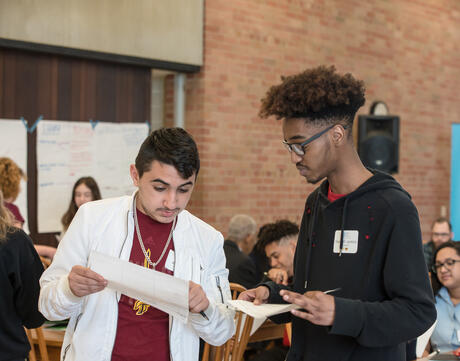
Educating Adolescents at the Intersection of Social-Emotional Learning, Civics, Equity, and Academics
On-Demand
Virtual
About this event:
Single Session
Our single professional learning sessions are designed to easily fit into your day. Typically one hour or less, these sessions explore timely and relevant topics including teaching strategies, current events, and more.
Self-Paced
This professional learning event is self-paced and will be delivered virtually. When you register, you will receive instructions for how access and participate in the event.
This event qualifies for Certificate of Completion.
In schools, adolescents have the opportunity to practice participation in a democratic society. To meet the needs of adolescents as they develop, educators must provide the environment and tools for self reflection and authentic engagement and encourage students to ask difficult questions about ethics, fairness, and justice in their world.
For the past 45 years, Facing History has recognized that an Social, Emotional, and Academic Development (SEAD) approach to education provides an effective framework for teaching and learning. In this webinar, we shared how Facing History works at the intersection of social-emotional learning and academics, informed by civic engagement and equity and justice. We provided resources and strategies for you to consider integrating these four elements in your school or classroom.
Facing History’s approach to SEAD enables teachers to promote students’ historical understanding, critical thinking, empathy and other social-emotional competencies, and to facilitate transformative dialogue in their classrooms. In Facing History classrooms, teachers:
- Promote a climate of respect;
- Model a culture of questioning;
- Nurture student voice; create space for diverse identities, viewpoints, and lived experience;
- Deepen reflection through thoughtful silence; and
- Honor different learning styles.
We are grateful to The Hammer Family for supporting the development of our on-demand learning and teaching resources.
Please note: The views expressed by guest speakers, both at our events and on external platforms, are their own and do not necessarily reflect the views of Facing History & Ourselves.

